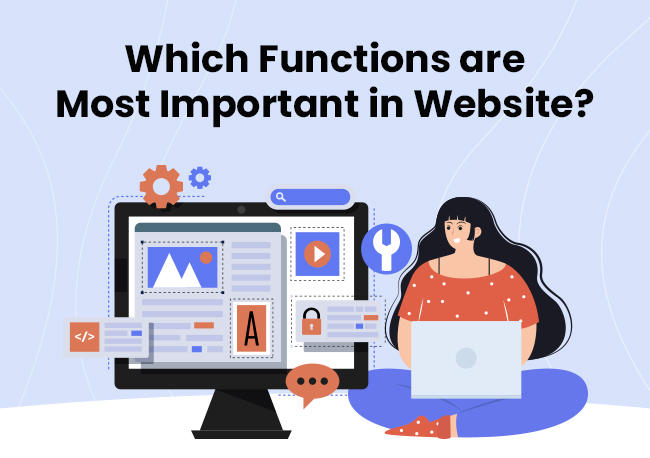Finding the best eCommerce CMS for your online store?
You are in the right spot!
If you are looking to get started with a website, you surely have come across something called a “CMS”.
A CMS, or a Content Management System, is a software that helps you manage your website content without any coding knowledge.
A CMS basically helps you build your website with ready-to-use templates and elements without needing to create one from code. With a CMS, you can create, publish, and edit digital content on your website with no hassles!
There are several CMS service providers out there. And it can get overwhelming to pick the one that’s right for you. Some CMSs are good at some things, while some are good at others. There are advantages and disadvantages that come with virtually every CMS.
And so, the answer to the question: “Which one should I get?”, depends completely on what you want to do with your website. With this article, we will help you find the best CMS for your eCommerce business.
ALSO READ: Complete Guide To The Content Management System
What is an eCommerce CMS?
As the name suggests, an eCommerce CMS is a platform that is equipped with the tools required to help you sell your products and/or services online. An eCommerce CMS has in-built provisions for your website to have a catalog, an inventory, a cart, logistics/shipping management, and all the other stuff you may need for your online business.
With an eCommerce headless CMS, you can further enhance the flexibility and scalability of your online store by separating the frontend and backend, enabling seamless integration with various channels and devices for a superior customer experience.
ALSO READ: Am I At Loss Without A Website?
Why do you need a CMS for your eCommerce website?
Let us explore the benefits of an eCommerce CMS over building an eCommerce website from scratch…
1. Easy for you
With an eCommerce CMS, you can design and deploy your webstore with great Ease.
Most CMSs were envisioned to help people with zero programming know-how build their own website…all by themselves. And a lot of such people have successfully done that.
2. Time Management
With ready-to-use templates, easy-to-follow steps, and standardization, eCommerce CMSs will save a lot of your precious time that you’d rather invest in other important dimensions of your business.
3. Great Performance
With so many businesses relying on these eCommerce CMSs worldwide, you can rest assured that they will do the job. With millions of people relying on CMSs, and consistent trials, surveys, and updates, you are sure to receive the best possible services that help you deliver your services smoothly.
4. Customer Service
Glitches and functional issues are rare, given the fact that they have been deployed and implemented on a massive global scale. But if you do face a glitch, most CMS providers deliver good Customer Support. [And since they tend to be big brands that have a lot to lose even from the smallest snags, they tend to take performance issues seriously, hence offering better performance and quick fixes!]
5. Easy for your customer:
CMSs are constantly undergoing modifications and updates to optimize the customer journey.
6. Security
Top CMSs for eCommerce come with top-notch security, which is of utmost importance for the security for eCommerce websites.
ALSO READ: Website Development Checklist To Help Create Your First Website
Qualities of the Best eCommerce CMS
1. Fits your budget
Do not bite off more than you can chew!
You have to figure out what your best eCommerce CMS platforms that are well within your budget. Do your homework. There are online forums that you could seek guidance from. Set a budget and stick to it.
ALSO READ: How To Set A Budget For Your Business Website Development
2. Security
CMSs generally tend to be more secure, but not all CMS providers will provide you with the same level of security. Some provide none. There are the best CMS platforms for eCommerce websites in the market that gives importance to security, so you have to pick wisely to ensure customer data security.
3. SEO Tools
While quality content is more important, without good SEO practices, even the best content will never reach the target audience.
Strong SEO for eCommerce sites helps boost visibility and bring your content in front of potential customers.
A good eCommerce CMS software for SEO is equipped with the best SEO tools and features like auto XML sitemap generation, URL editing options, auto navigation link generation that can also be manually edited, blogging tool integration capability, auto-generated titles, and meta-descriptions, etc.
4. User Experience
Your eCommerce CMS should provide a great User Experience. It should be pleasant for their eyes and easy on their minds. Go for a CMS that has a reputation for being easy to navigate and is quick to load.
5. Business Support and Marketing
CMSs these days provide a range of tools or plugins for marketing automation, project management, designing, blogging, and can also be integrated with APIs to network with your ERP, CRM, and/or Inventory Management software.
Ensure that your eCommerce CMS has the features needed to support your work.
6. Testing and Analytics
Analytic tools are a great asset to have on your side, as they give you data on what your audience likes and how your site performs. Resources like Google Analytics and Search Console can really come in handy.
All great eCommerce CMSs have integration with such tools, as well as built-in reports, insights, and recommendations. Further, your CMS should come with good A/B Testing features to test and deliver an optimized website experience to your audience.
Top 7 CMS Platforms For An eCommerce Website
Let us now look at 7 of the best eCommerce CMSs for you, along with their pros and cons to help you pick one:
ALSO READ: 22 Best Plugins For WordPress In 2022
1. Jumpseller
Jumpseller provides a fun website-builder and comes with top-notch multi-language support and also multiple payment options that make the best case for your business globally.

Pros:
👍 Super easy to use CMS with a wide reach.
👍 App for easy Social Media Marketing.
Cons:
👎 Offers a limited number of templates and apps.
👎 Does not offer features like gift cards and related product suggestions.
Pricing: $21/month to $84/month.
Small businesses can benefit from its simplicity and wide reach with zero development investments.
2. WooCommerce (Plugin)
WordPress is the most popular CMS globally, and WooCommerce is the plugin used to equip a WordPress for eCommerce. Both WordPress and WooCommerce are free to use, while the add-ons you go for may or may not be free.

Pros:
👍 Simple to use, neat and intuitive interface.
👍 The possibility for unlimited customizations.
👍 Availability of a load of extensions – both free and paid.
👍 Great SEO tools.
Cons:
👎 Thorough knowledge on WordPress and WooCommerce required.
👎 Need to buy Domain and Web Hosting separately (still a lot cheaper!).
Pricing: Free.
There are many benefits of WordPress & it is suitable for EVERYONE. Anyone could use WordPress as a CMS, whether you’re looking to blog for leisure or run an eCommerce business.
ALSO READ: Guide For Non-Techies To Build A WordPress Website
3. Shopify
Shopify gives you a really easy-to-use, and efficient eCommerce CMS platform that has been a really popular choice lately.

Pros:
👍 Easy to use.
👍 Offers great Themes.
👍 Avails the benefit of Mobile Friendly website.
👍 Good Apps and Extensions to help you with your business.
👍 Comes with SSL security.
Cons:
👎 Not flexible – the users cannot tailor their website to their exact needs.
👎 Good themes are all paid.
👎 Theme customizations are difficult for non-tech people.
Pricing: 3 basic packages ranging from 29$/month to $299/month.
Shopify is very well suited for small to medium eCommerce businesses.
4. PrestaShop
PrestaShop is a relatively new eCommerce platform for online businesses that has gained quite some popularity since its launch. It is a free, open-source platform that is very easy to set up and install with little web development knowledge.

Pros:
👍 Has all necessary features for conducting commerce online built-in.
👍 It has a vast marketplace that offers various modules and extensions for enhancing your eCommerce website’s functionality.
Cons:
👎 Offers limited scalability – not suited for complex operations.
👎 No support.
👎 Existing add-ons are expensive.
Pricing: Free.
PrestaShop is not a “fancy” platform that can split the seas while juggling elephants, it is a simple platform that does the job for small businesses very effectively.
5. Squarespace:
Squarespace is one of the best eCommerce CMS platforms that give you a lot of eCommerce website templates to choose from.

Pros:
👍 Simple drag-and-drop widgets to easily add text and image elements.
👍 Provides reliable integration options to choose from.
Cons:
👎 No website backup or restore mechanism.
👎 Not a lot of payment processors.
Pricing: $12/month to $40/month.
6. Magento

Magento was envisioned as a super-capable, super-flexible, high-performance platform. And it is all of those! It is full of features and offers the possibility of endless customizations.
Pros:
👍 Super-flexible with endless customization capacity.
👍 Smooth functionality, and is very fast.
Cons:
👎 Expert level know-hows required.
👎 Quite expensive.
Pricing: Contact Magento
Magento is suitable for medium to large businesses with an expert tech team (and deep pockets!) and complex operational needs from their site.
7. BigCommerce
BigCommerce is yet another fairly good CMS for eCommerce.

Pros:
👍 Supports a fair number of extensions and integrations.
👍 Easy to use.
👍 Offers quick loading pages.
👍 Great theme options.
Cons:
👎 The built-in blog is…well, not so good.
Pricing: Start from $29/month, goes up to $“let’s discuss this privately”/month.
While it has something for everyone, it is better suited for medium to large businesses.
Also Read: 5 Best Website CMS Detector Tools You Must Try
Frequently Asked Questions Regarding eCommerce CMS Platforms
No, technical knowledge is not necessary to use an eCommerce CMS for your online store.
Most platforms come with user-friendly interfaces, drag-and-drop features, and customizable templates that make setup easy for anyone. However, understanding technical requirements for eCommerce sites and advanced customization technical support may be beneficial.
Yes, You can easily customize the design of your online store with an eCommerce CMS platform.
Yes, you can easily manage multiple online stores with a single eCommerce CMS.
Yes, you can easily migrate your existing online store to a different eCommerce CMS whenever you want.
Conclusion:
All CMSs have their pros and cons. Figure out your style of delivering your products/services…
- Do you want it to be content-heavy? WordPress is for you.
- Do you want a small, simple e-shop that just does the job? – PrestaShop it is.
- How deep would you like to get into it? Would you like to edit it in the future for taking on bigger business roles? – WooCommerce or Shopify would be good.
- How about a really complex website that serves a lot of functions at the same time? – You need something like Magento or Drupal.
First, figure out your online goals. Then, do your research while selecting a CMS that fits your budget and helps fulfill those goals.




